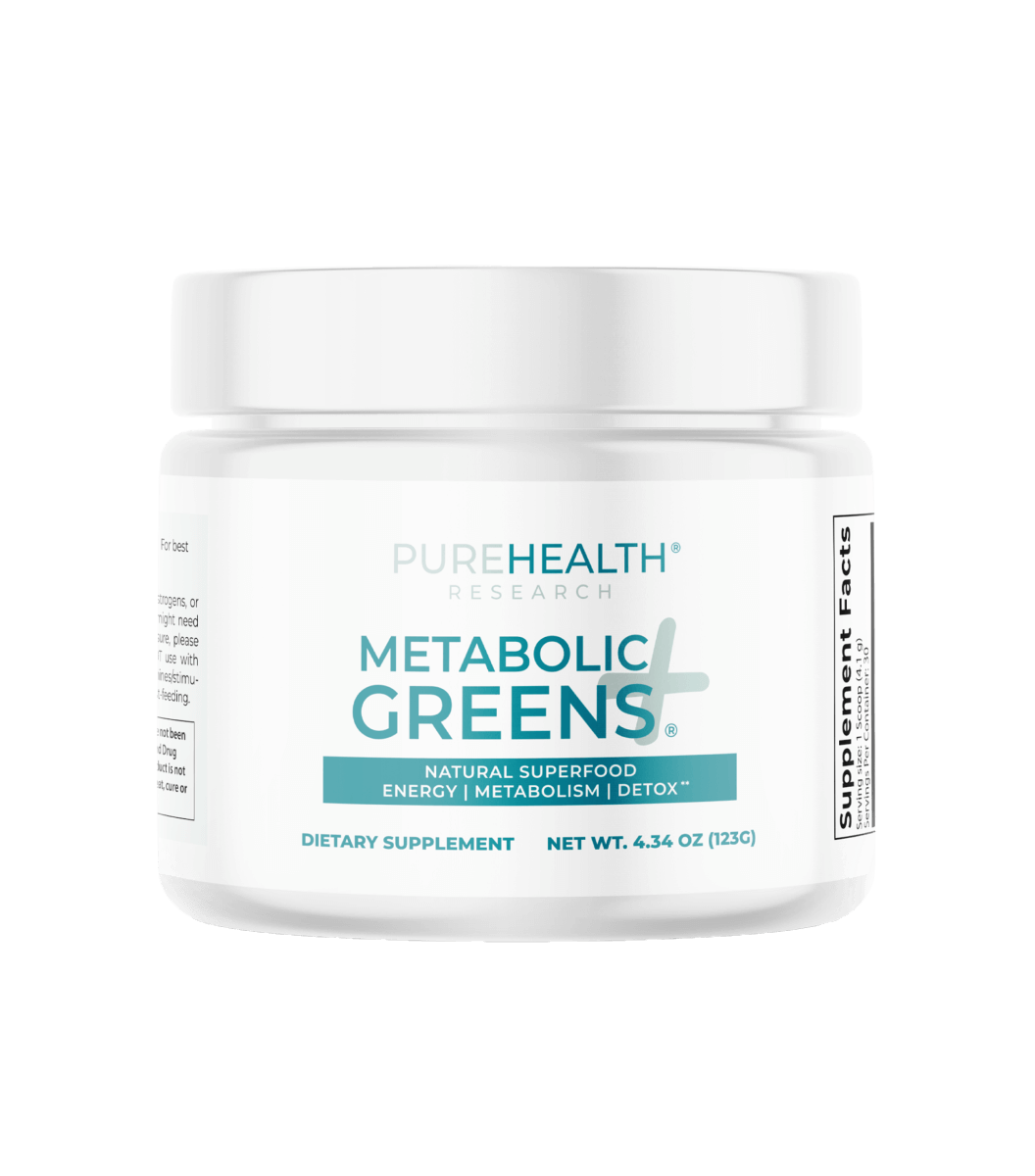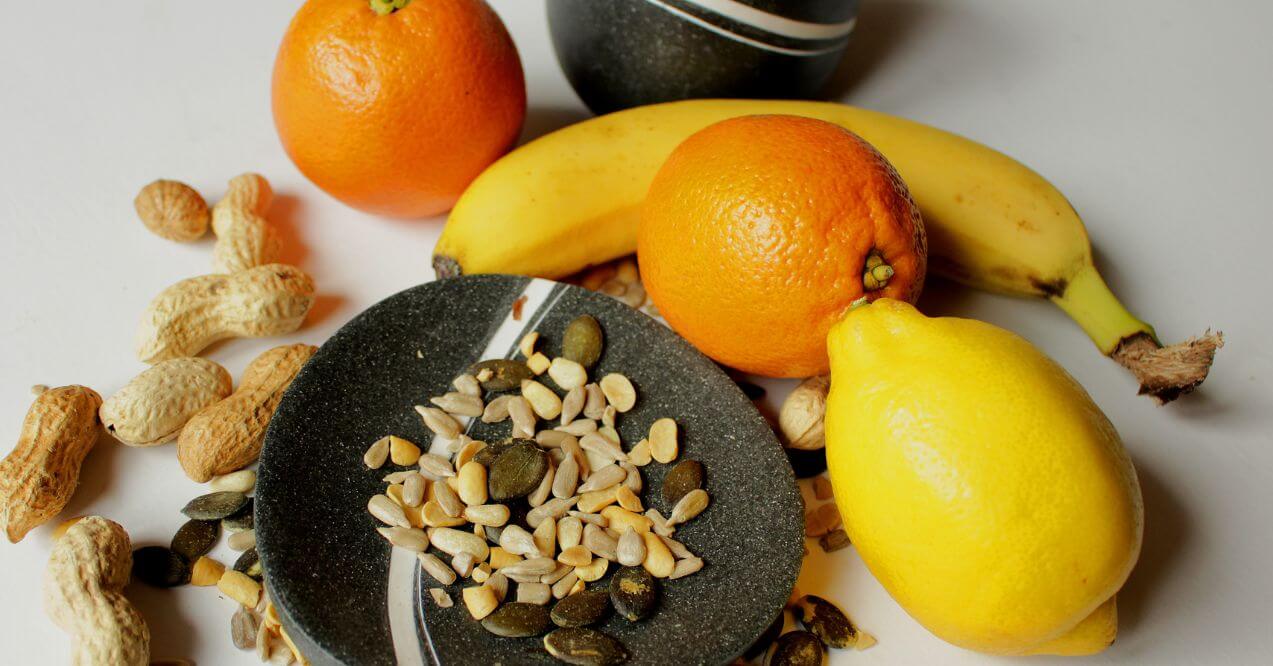5 Best Vitamins for Gut Health
Want optimal gut health in 2023? Read everything you need to know about it and enjoy maximum aid from the best vitamins for gut health in this article.


Gut health is essential for overall well-being, and the best vitamins for gut health are an ideal way to support it. Some vitamins can aid in combating inflammation, enhancing digestion, and strengthening the immune system. Chronic or acute gastrointestinal disorders significantly impact the quality of life, so information about what vitamins are accommodating for gut dysfunction is valuable.
Studies demonstrate that certain vitamins can modulate the gut microbiome by boosting presumed commensal abundance. The right combination of essential vitamins with nutrition can work wonders for gut health. In particular, you can aid gut flora and digestive enzymes with the best vitamins for digestion, averting damage or chronic inflammation.
Additionally, it is important to consider the best vitamins for gut health, especially with more people turning to supplements to meet their vitamin and mineral needs. A healthy diet for your gut is closer than you think, as the right choice of vitamins in diets can promote positive health outcomes.
Your gut microbiome needs these essential compounds to thrive and keep your body’s overall functioning. Keep reading to find out more about your gut health.
Why Is Gut Health Important?
The gut houses 70% of the immune system, and nutrition significantly regulates its function. A person’s diet and lifestyle directly influence the diverse array of fungi and bacteria in the gastrointestinal tract, thus affecting the immune cells interacting with it.
This gut ecosystem known as the gut microbiome is highly responsive to the foods we consume, as these bacteria assist in digesting food and breaking it down into usable nutrients for the body. The right kind and amount of phytonutrient-rich food balance are fundamental to ensuring a healthy gut microbiome.
The breaking down of food items to digestible nutrients and strengthening of the immunity system occurs with an antioxidant and fiber-rich diet that promotes positive microbial diversity. Supporting the microbiome and reducing inflammation prevents illness, thus aiding in better overall mental and physical health.
Furthermore, the gut is central to the gut-brain axis, connecting to the nervous system and producing many neurotransmitters. These include serotoninergic system modulation, which influences both physical and emotional health.
Since bacteria in the gut are also associated with overall inflammation, it can lead to poor eating habits and excessive snacking. That’s why having a good balance of vitamins in your diet is significant for protecting gut health and promoting well-being.
What Vitamins Are Good for Gut Inflammation?
An extensive array of vitamins is essential in maintaining overall gut health. High-potency ones are necessary for reducing inflammation due to chronic gut illnesses. Some of the best vitamins that can boost digestive health and reduce inflammation include D, C, B, A, and magnesium.
Vitamin D helps with calcium absorption and strengthens the immune system’s role in cell division since it is fat-soluble. Individuals deficient in vitamin D tend to develop more stomach issues.
Vitamin C aids in producing collagen, which is necessary for a healthy gut lining due to its antioxidant properties. It minimizes inflammation. You can acquire this vitamin from leafy greens, tomatoes, and citrus fruits.
B vitamins regulate carbohydrate, fat, and protein metabolism. They include biotin, a form of Vitamin B6 that assists in preventing diarrhea and constipation.
Vitamin A helps safeguard the intestines lining from damage and keeps the immune system healthy.
Finally, magnesium is integral in controlling muscular spasms or cramps in the gastrointestinal tract and stabilizing the harmonious bacteria levels. However, before exceeding the recommended daily intake values with high-potency vitamins for gut issues, it is imperative you consult your primary health practitioner or specialist.
Best Vitamins for Gut Health: What Are They?
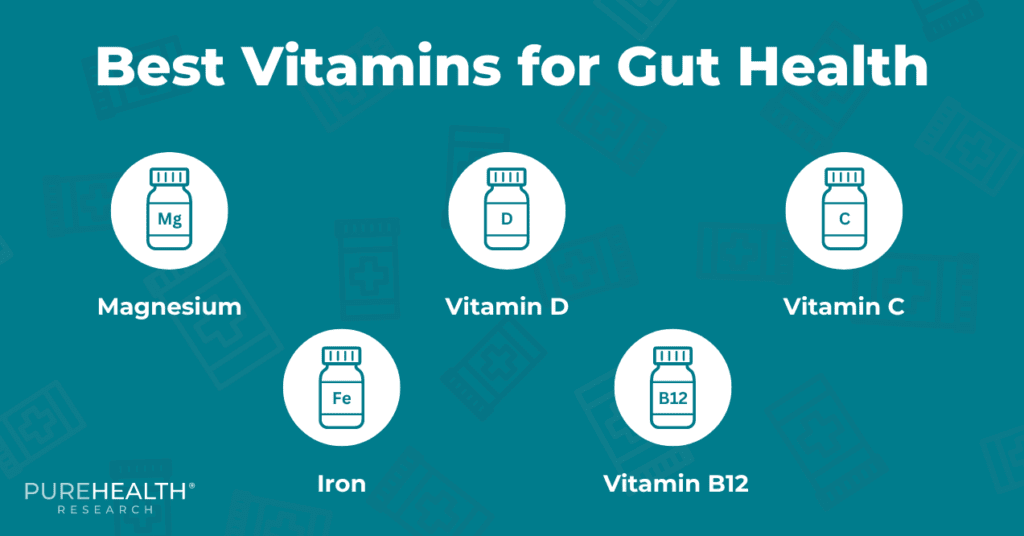
You may be wondering what are the best vitamins for gut health. Regular consumption of various nutrients is necessary to maintain good gut function. Adults most commonly use mineral and multivitamin supplements as their dietary contribution to gut health.
Each vitamin has unique nutritional benefits, so it is critical to determine which ones are most beneficial for gut health. Below are five of the best vitamins for gut health.
1. Magnesium
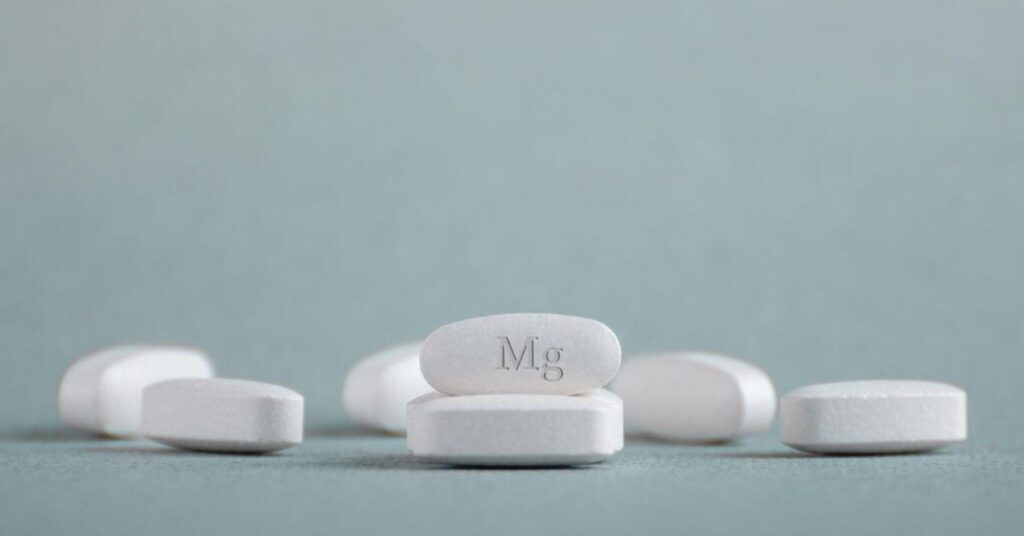
Magnesium plays a crucial role in our overall health. Approximately half of the magnesium in our bodies is stored in our bones, while the remaining half is actively working within our cells. One of magnesium’s standout benefits is its positive impact on gut health. It attracts water to the digestive tract and helps drive muscle contractions in a rhythm called peristalsis.
This rhythmic movement in the intestines ensures food travels smoothly down to the digestive tract, helping prevent issues like constipation. Moreover, those suffering from conditions like irritable bowel syndrome may find relief with magnesium. It’s effective in reducing common symptoms such as bloating, stomach cramps, and diarrhea.
Additionally, by increasing water content in the intestines, magnesium aids in the optimal function of bowel muscles — a key factor in bolstering our immune system. Many of us get our daily magnesium intake from foods like alfalfa, barley, beetroot, almonds, and spinach. These foods are especially valuable because they supply magnesium in its cofactor form.
This means the magnesium is paired with other vital vitamins and minerals, ensuring maximum digestion efficiency. If you’re considering supplementation, magnesium comes in various forms: from pills to liquids to powders that can be mixed into beverages.
It’s essential to know that different magnesium products might have different absorption rates in the small intestine, so dosages may vary. And let’s not forget: a healthy gut microbiome heavily depends on magnesium, highlighting its significance in maintaining digestive wellness.
2. Vitamin D
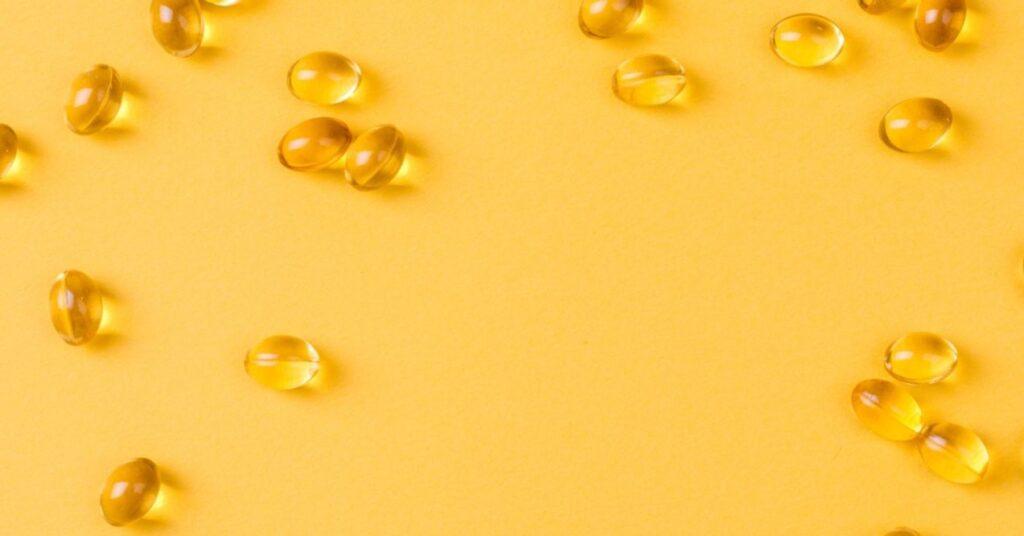
Vitamin D is essential for enhancing our immune response and mitigating inflammation throughout our body, which in turn supports gut health. An interesting interplay occurs between the gut’s VDR gene and vitamin D. Together, they work to maintain a balanced microbiota by modulating antimicrobial peptide (AMP) expression and safeguarding the barrier functions of our gastrointestinal mucosa.
This gene’s mechanisms enable our bodies to either absorb vitamin D from food or produce it when exposed to sunlight. Alarmingly, many individuals are deficient in vitamin D, even though it’s easily accessible. Simple outdoor activities can help one meet their vitamin D needs.
For most, soaking up the sun for short intervals, roughly 10-30 minutes two to three times a week, is sufficient to achieve the recommended intake. Through sunlight, our body produces vitamin D, and the protein of the VDR gene aids in detecting this synthesis.
Furthermore, vitamin D plays a pivotal role in regulating the absorption of phosphate and calcium from our intestines into our bloodstream. It oversees this function by managing the flow of these minerals in our body and within the gut’s microbial community.
The proper functioning of vitamin D is instrumental in creating a gut environment that fends off diseases and ensures crucial minerals like magnesium and their accompanying cofactors operate synergistically. Given the widespread deficiency of vitamin D in our diets, supplements can offer a valuable boost.
Introducing more vitamin D can lead to a richer microbial diversity in our gut, elevating the presence of beneficial bacteria and helping curb inflammation. Studies indicate that fortified dietary supplements, like certain milks, can elevate vitamin D levels, offering myriad benefits to reproductive, immune, and gut systems.
Simple habits, like a brisk morning walk before breakfast, can significantly elevate one’s vitamin D levels, underlining its pivotal role in regulating vital minerals and fostering a flourishing gut ecosystem.
3. Vitamin C

Recognized for its water-soluble properties, Vitamin C plays a pivotal role in enhancing iron absorption and supporting the synthesis of collagen, hormones, and carnitine. Its multifaceted benefits encompass bolstering immune health, impeding bacterial growth, and fostering optimal digestion.
Remarkably, even modest dietary intake of Vitamin C can have a pronounced positive impact on gut microflora, magnifying its microbial health advantages. Vitamin C’s protective prowess stems from its detoxifying capabilities, which shield the gut microbiota from potential harm. The glands forming the intestinal mucosa readily absorb Vitamin C, offering a defense against gut inflammation.
Beyond its anti-inflammatory properties, Vitamin C fortifies immune resilience and offers a protective layer for the stomach lining. In the dynamic landscape of our gut, Vitamin C acts as a moderator, harmonizing the microbiome composition.
Its presence can even amplify the efficacy of certain therapeutic medications, preventing the accumulation of specific gut proteins over time. Presently, many acid reflux medications incorporate Vitamin C, a testament to its enduring influence on regulating gut immunity. Naturally, Vitamin C abounds in foods like berries, broccoli, and citrus fruits.
Incorporating these into your diet not only bolsters absorption capabilities but can also counteract inflammation triggered by elements like elevated iron levels. For optimal health, it’s advisable to embrace a diverse diet, emphasizing vitamin-rich foods, especially leafy green vegetables.
4. Iron

Iron is a vital mineral that our bodies need for overall health and strong cell growth. It plays a key role in the stomach and intestines. Some harmful bacteria in our gut, like Shigella and Salmonella, use iron to grow and spread more easily. This means that the amount of iron in our intestines can influence whether these harmful bacteria thrive or are kept in check.
In scientific studies, iron has been shown to affect how our body’s defense system, the immune system, reacts to these harmful bacteria. For instance, iron can help Salmonella, one of these bad bacteria, invade our body’s cells. But, interestingly, the right amount of dietary iron might help our body resist certain harmful bacteria.
When we take iron, either from food or supplements, it can change the mix of good and bad bacteria in our gut. Iron-rich foods include acai, raspberries, beetroot, and legumes like beans and lentils.
These foods are not only rich in iron but also have fiber that supports the growth of good bacteria. They also contain other nutrients that help our body, gut, and bacteria work well together. For people who don’t have enough iron in their diets, there are iron supplements available.
But it’s crucial to get the right amount. Too little or too much iron can make it easier for harmful bacteria to cause diseases in our gut.
5. Vitamin B12

Vitamin B12, commonly known as cobalamin, plays a pivotal role in maintaining gut health and human metabolism. It’s an essential organic compound that serves multiple functions, primarily aiding gut bacteria in processes like acetate production through the Wood-Ljungdahl pathway and the conversion of succinate to propionate.
Cobalamin’s significance extends further, acting as a coenzyme in various cellular processes, from neurotransmitter synthesis to energy production. Its methyl-form, often used in natural dietary supplements, empowers gut bacteria, with over 80% relying on B12 for efficient metabolism.
B12’s influence isn’t limited to just bacterial metabolism. It also facilitates crucial reactions, including the production of methyl donors and SAM, vital for nucleic acid synthesis and the metabolism of proteins and lipids. A deficiency in B12 can compromise the functionality of gut microorganisms, potentially leading to imbalances in gut health.
Furthermore, its dietary levels can even sway colon inflammation responses. Natural sources of vitamin B12 are abundant in animal-based foods – think dairy, eggs, poultry, fish, and meat. For those seeking plant-based alternatives, fortified foods, including certain cereals and yeasts, are viable options. Introducing these sources into one’s diet can have pronounced effects on gut microbiota.
In essence, maintaining optimal B12 levels not only fosters a thriving gut community but also staves off potential adverse gut conditions. Unfortunately, many foods with the highest nutritional values are also foods that become difficult to tolerate when dealing with a chronic bowel disorder.
What Should I Take Daily for Gut Health?
Many health experts recommend a combination of dietary adjustments, probiotics, and specific vitamins and minerals for a healthy gut and immune system. One such product that encapsulates many of these essential nutrients sourced from real food is Metabolic Greens+.
It is one of the main supplements for gut health and digestion that offers a powerful, natural blend of five revitalizing superfoods. The 48 potent ingredients nourish your body and boost overall health. Specially formulated to support digestive health, it includes a rich array of nutrient diversity with ingredients such as protein-rich barley grass and spirulina to help promote optimal gut health.
It also features an enzyme blend that assists in breaking down essential nutrients for more efficient absorption by the body.
Dr. Holly Lucille, ND, recommends Metabolic Greens+ as an effective way to support healthy immunity, reduce occasional bloating and gas, and promote nutrient absorption. Gut health is a crucial component of overall wellness, and Metabolic Greens+ provides a natural and nourishing option for supporting your digestive system.
Metabolic Greens+ offers a comprehensive array of naturally sourced vitamins and minerals essential for gut health, including magnesium, iron, and B vitamins. It also provides probiotics and a blend of enzymes designed to offer complete gut health support. For example, the barley grass extract in this blend can help reduce the risk of gallstones by up to 10% and aid in nutrient absorption.
In addition, Metabolic Greens+ can help combat free radicals, increase energy levels, boost mood, and promote longevity. Furthermore, Metabolic Greens+ adheres to strict safety standards, and its ingredients are sourced from non-GMO real ingredients. Each component of the supplement undergoes a unique preparation process to maximize absorption, ensuring its efficacy.
As a result, Metabolic Greens+ offers an easily absorbed source of essential nutrients that can be challenging to obtain solely from food, especially when dealing with gut issues. Incorporate Metabolic Greens+ into your daily routine and experience the difference it can make in your overall well-being!
Conclusion
Gut health is fundamental for optimal well-being, and knowledge about what vitamins can promote positive outcomes is invaluable. A balance of essential vitamins and nutrients in your diet is critical for protecting gut health, as it supports microbial diversity, especially the gut microbiome. Magnesium, vitamin D, iron, vitamin B12, and vitamin C are all essential in promoting good gut health.
If you’re looking to optimize your bodily functions, these best vitamins for gut health can provide you with the most dependable nutritional benefits. And best of all, you can acquire them via nutrient-rich foods or specially-made supplements, such as Metabolic Greens+.
Eat a balanced diet and take the right vitamins for your gut health to enjoy optimum well-being.
Sign up for our Healthy Living newsletter!
Advertisement. This site offers health, wellness, fitness and nutritional information and is designed for educational purposes only. You should not rely on this information as a substitute for, nor does it replace, professional medical advice, diagnosis, or treatment. If you have any concerns or questions about your health, you should always consult with a physician or other health-care professional. Do not disregard, avoid or delay obtaining medical or health related advice from your health-care professional because of something you may have read on this site. The use of any information provided on this site is solely at your own risk.
